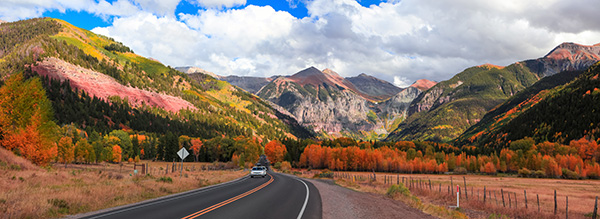
Driving through the hills of Colorado can be a great experience unless your car starts to feel like it’s working a little too hard. If your vehicle suddenly struggles on inclines or feels unresponsive when you press the gas, it's a sign that something isn’t right. The problem may be minor, but when you're climbing hills in higher elevations, even a small issue can become much more noticeable.
Elevation Impacts Engine Power More Than You Might Expect
Higher altitudes mean thinner air. That reduced air density makes it harder for your engine to produce the same power it does at sea level. Internal combustion engines rely on a precise mix of fuel and oxygen. At higher elevations, there’s simply less oxygen available, so your car’s computer must adjust the air-fuel ratio to compensate.
For naturally aspirated engines (ones without a turbocharger) this can lead to a noticeable drop in performance. Even if your vehicle is in perfect shape, it may feel slower going uphill in Denver than it would on flat roads near sea level.
Dirty Air Filters Can Amplify the Problem
Your engine already gets less air in higher elevations, so a clogged air filter only makes matters worse. If the filter is dirty, it restricts airflow and forces the engine to work harder just to maintain basic performance. When climbing hills, that lack of airflow can create a lagging or sluggish feeling, especially under load.
If you haven’t replaced your air filter in a while, or if you drive on dusty roads, it may be time to check it. Replacing a dirty filter is a quick and affordable way to improve engine breathing and help restore power.
Fuel System Issues Can Cause Power Loss Under Load
Fuel delivery problems often become more obvious when your engine is under stress. That includes situations like highway merging, towing, or hill climbing. If the fuel pump is weak or the fuel filter is partially clogged, the engine may not get enough fuel to match its needs. The result is hesitation, reduced throttle response, or poor acceleration.
Over time, this can lead to misfires or check engine lights, but at first, it may just feel like the car is sluggish in the hills. A technician can test the fuel system for pressure and flow to determine if it's keeping up.
Transmission Trouble Can Also Show Up on Hills
If your transmission is slipping, shifting at the wrong time, or struggling to stay in gear, you might feel a lack of power when climbing. This isn’t always the engine’s fault. Automatic transmissions use sensors and fluid pressure to select the right gear. If something is off, the car may downshift too late or fail to maintain the proper torque, making it feel underpowered.
Pay attention to how the vehicle shifts while climbing. If the RPMs spike without a change in speed, or if it feels like the transmission is hunting for gears, it may be time for a transmission inspection.
Sensor Problems Can Confuse the Engine’s Response
Modern vehicles use many sensors to adjust performance based on driving conditions. A failing mass airflow sensor, oxygen sensor, or throttle position sensor can send inaccurate data to the engine control module. This may result in poor fuel delivery, incorrect timing, or delayed throttle response.
You might not see a check engine light right away, but if your car feels lazy or slow on hills and nothing else appears to be wrong, sensor performance is worth looking into.
How to Prevent That Sluggish Feeling in the Future
If your car feels fine most of the time but struggles when climbing, that’s often a sign that something small is starting to wear out. Keeping up with routine maintenance is the best way to avoid performance drops:
- Replace air filters regularly
- Use quality fuel
- Follow factory maintenance intervals for spark plugs and fuel system service
- Check for software updates if your vehicle uses a drive-by-wire throttle or adaptive shift control
Even newer vehicles benefit from inspections before heading into the mountains, especially if you’re planning to tow or drive in higher elevations for long periods.
Hill Climb Performance and Engine Diagnostics in Denver
If your car feels weak when climbing, don’t assume it’s just the altitude. That may play a role, but there could be other problems reducing performance. A proper inspection can identify airflow, fuel delivery, or sensor issues that are holding your car back.
Trust Mancinelli’s Auto Repair Center in Denver, CO, for Smart Diagnostics
At Mancinelli’s Auto Repair Center, we understand how elevation affects engine performance and know how to find the real reason your car feels sluggish on Colorado hills. Whether it’s air, fuel, ignition, or transmission-related, we’ll get to the bottom of it.
Schedule a visit today and get your vehicle climbing with confidence again.